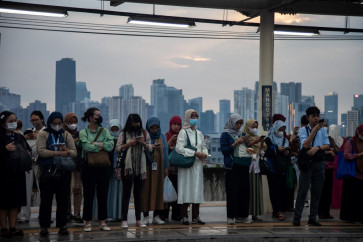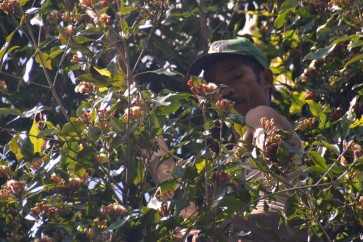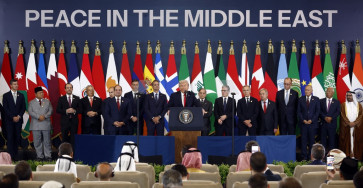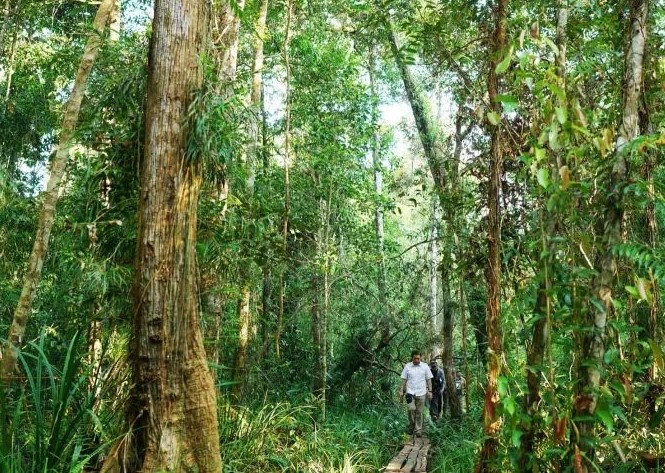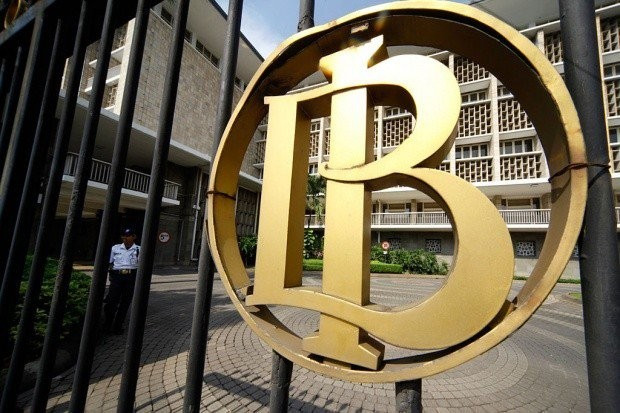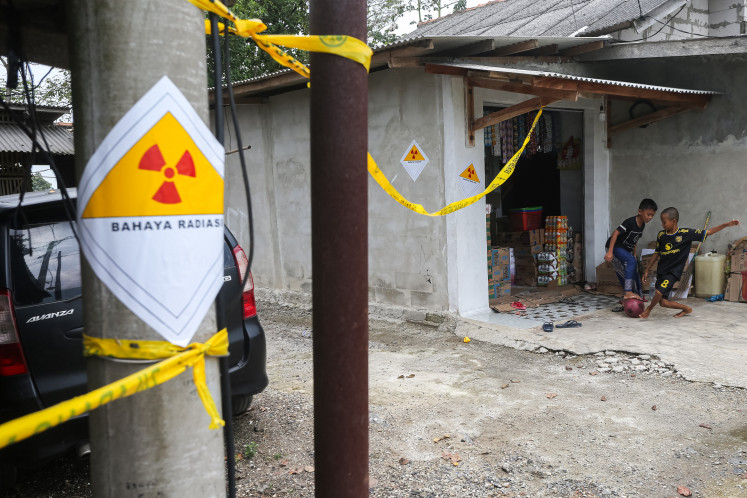Popular Reads
Top Results
Can't find what you're looking for?
View all search resultsPopular Reads
Top Results
Can't find what you're looking for?
View all search resultsVehicles used in mining banned from running on subsidized fuel
Starting Saturday, vehicles used in plantation and mining operations around the country will no longer be allowed to use subsidized fuels as part of the government’s program to curb the surge in the fuel subsidy
Change text size
Gift Premium Articles
to Anyone
S
tarting Saturday, vehicles used in plantation and mining operations around the country will no longer be allowed to use subsidized fuels as part of the government’s program to curb the surge in the fuel subsidy.
Energy and Mineral Resources Minister Jero Wacik said in Jakarta on Thursday that the ban was expected to curb the surging fuel subsidy, which was projected to further increase to Rp 193.80 trillion (US$20.22 billion) next year from about Rp 137.37 trillion this year.
The minister said, however, that vehicles used on smallholders’ plantations, with less than 25 hectares of land, and traditional miners would be still allowed to use subsidized fuel.
All industrial vehicles would be identifiable with stickers indicating the prohibition on subsidized fuel, Jero told reporters at his office.
“I urge them [mining and plantation companies] not to violate the regulation so that we can use the funds to develop this country’s infrastructure,” he said.
The ban is stipulated in Ministerial Decree No. 12/2012 on Fuel Restrictions, which also prohibits government cars from using subsidized fuel and which came into force in June.
Apart from banning subsidized-fuel usage, the government also obliges mining and plantation companies to prepare requisite infrastructure to obtain non-subsidized fuel for their operations.
“The companies should build their own fuel tanks located on their operation sites, so Pertamina can supply non-subsidized fuel to their locations,” Jero said.
He added that he had asked mining and plantation director generals to report any companies that violate the regulation. “If necessary, we will revoke their operating licenses,” Jero said.
Downstream oil and gas regulator BPH Migas, in cooperation with the National Police, will oversee the implementation of the ban.
The ministry’s minerals and coal director general, Thamrin Sihite, said that if mining companies violated the regulation, his office would terminate their permits.
The government has actually prohibited industries from using subsidized fuel ever since 2006. But vehicles used by mining and oil palm companies have continued to use subsidized fuel without any sanction or punishment.
Deputy director of the ReforMiner Institute, Komaidi Notonegoro, said the issuance of the new regulation indicated that the previous ban had been ineffective.
“The new regulation is a little odd in that it indirectly says the government has not done their job well, and that some industries are still using subsidized fuel,” he said.
Furthermore, Komaidi said implementing the regulation would be difficult as it would be hard for the government to identify the vehicles used for plantation and mining operations, in spite of the requirement that such vehicles should display stickers.
“First, the government needs detailed data on how many vehicles are used by the mining and plantation companies, and then they need to be able to monitor the regulation’s implementation effectively,” he said.


